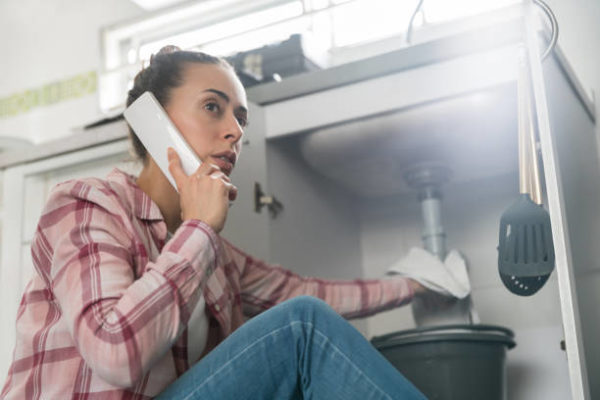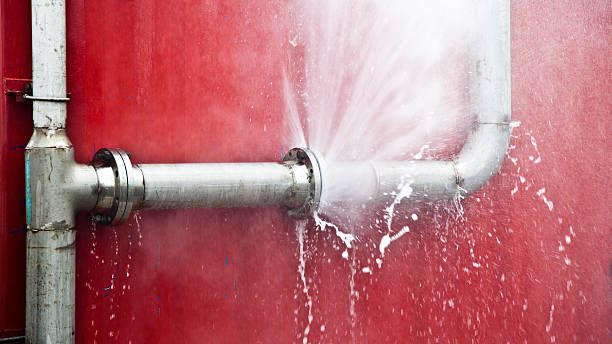Oxford languages dictionary describes an emergency as “a serious, unexpected, and often dangerous situation requiring immediate action.” When we apply that to real estate, it brings us to the question of what is considered emergency maintenance?
As the name implies, it is overseeing the repair of an unexpected mishap on your rental property–including after hours. Sometimes, even if you live several miles away, you or an employee need to get to your rental property as soon as possible to put out the fire. And in some instances, it might even be a literal fire.
Read until the end of this article to find out everything you need to know about emergency maintenance in property management.
What classifies as an emergency?
Any home accident can be a nuisance that disrupts your daily routine and causes some level of inconvenience for both you and your tenants. However, not every bother is worth the ’emergency’ tag and warrants your immediate attention.
To keep it simple, a property management emergency is any event that can cause immediate harm to your property and your tenants’ lives and belongings.
For example:
- A fire outbreak
- Broken water pipes
- A break-in
- A faulty HVAC system in extreme temperatures
- A damaged roof
- Electric problems
Of course, this list isn’t exhaustive. But you can see that the common trend is that these mishaps can potentially cause severe damage to the resident’s health and safety in a short time.
What doesn’t classify as an emergency?
On the other hand, it’s equally beneficial to know what doesn’t qualify as an emergency. Some repairs can afford to wait until regular business hours without fear of being penalized as a landlord. Such as:
- Burnt-out bulbs
- A faulty HVAC system in temperate weather
- Minor water leaks
- Faulty appliances e.g., When the refrigerator is down
- Noise pollution
How to handle a rental property emergency
Now that we’ve distinguished between what landlords should consider an emergency and what they shouldn’t, what’s next? Well, it doesn’t do you any good to know what requires your urgent attention without knowing how to respond.
Here’s a step-by-step guide on what you should do:
Create a plan to address such issues
Although an emergency is an unexpected scenario, that doesn’t mean you should be unprepared as well. On the contrary, having a clear outline of what you should do will help you respond swiftly and appropriately.
Your plan might constitute simulating a fire drill, assigning specific duties to your employees in hypothetical scenarios, and having emergency tools (such as a fire extinguisher) within reach. Installing proper procedures to address particular issues will ensure that you can respond most efficiently if they do happen. A plan could be the difference between life and death or a bill that runs into thousands of dollars.
Have a list of emergency contacts handy

Next, ensure that you keep a list of emergency contacts handy. Although many landlords tend to pick up some maintenance hacks over the years, some issues require an expert hand, especially when it’s urgent. It is beneficial to have the right services on speed dial.
Of course, your emergency services should be reliable and efficient. It would be best if you chose the correct plumber, electrician, or other repair services to standby. Ensure you check their credentials, read their reviews, and inquire about company policies. For example, do they offer 24/7 services? As that can be beneficial in a crisis.
Establish open communication channels
Communication is an essential part of resolving any crisis, so you need to establish swift and efficient communication channels. Your tenants should have a means of contacting you at all times, so you can both work on finding a medium that all parties can use effectively. It could be via email, call or text.
If you’re not the best person to contact in an emergency, then your tenants should know who to communicate their grievances to. If it’s the property manager, ensure they are available to attend to matters promptly. You can also put up fliers with the right emergency contact on your property.
Document what happened
In the heat of the moment, it might be impossible for you to document everything as it happens. But once there’s a reprieve, don’t hesitate to put it all down in writing. It’s crucial to know the exact details of the event, not only for records purposes. But also for insurance claims. You’ll have a much easier time getting compensation for damages or services if you present the facts and not just what you vaguely remember.
Conclusion
Dealing with an emergency requires quick action to mitigate the worst possible scenario. But understandably, sometimes life happens, and a landlord might find themselves caught up in another situation.
That’s why consulting a qualified property management firm is a beneficial strategy in handling an emergency. Also, make sure your property manager has a policy for handling after-hours emergencies, as that will save you time and money.


